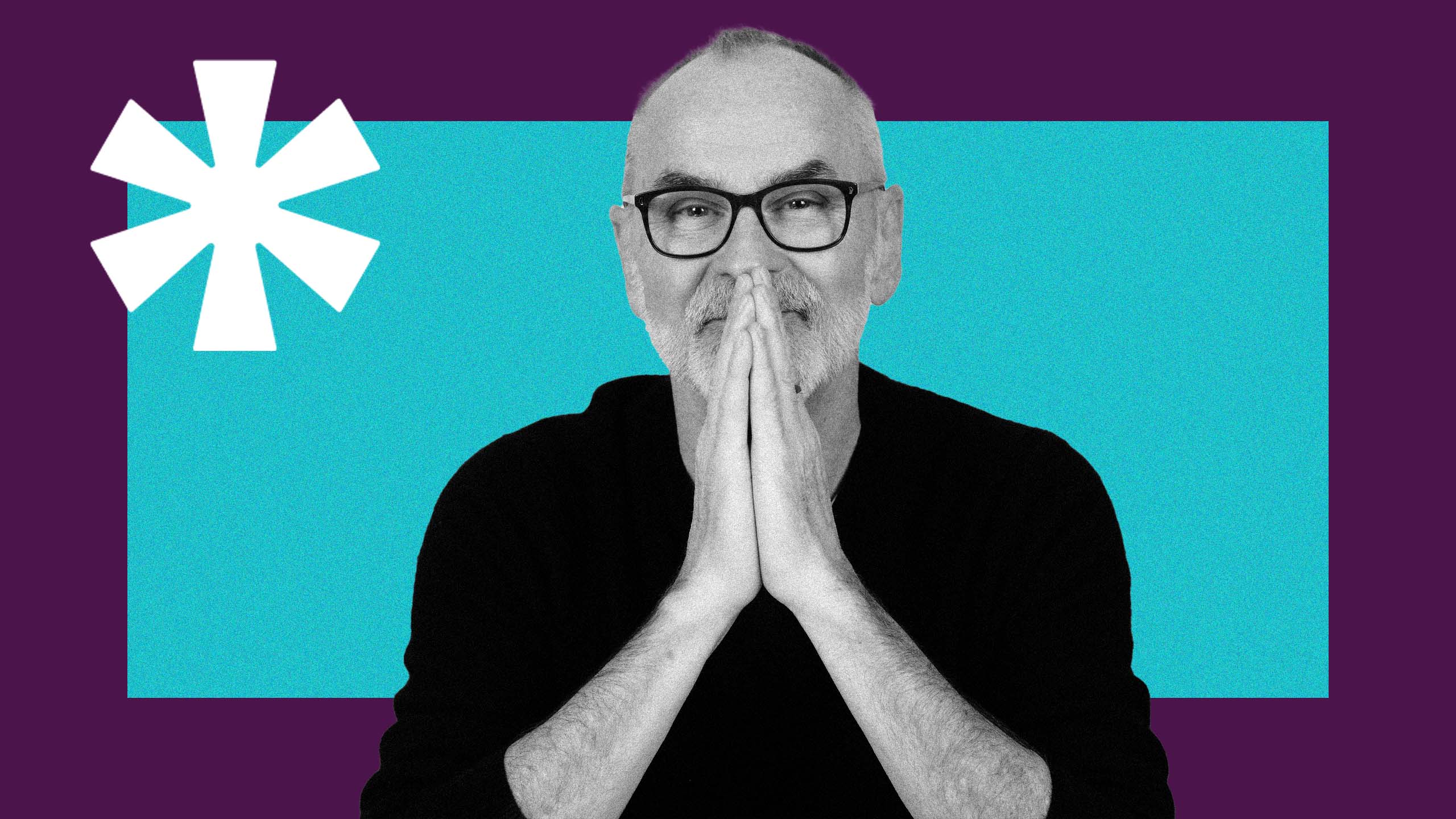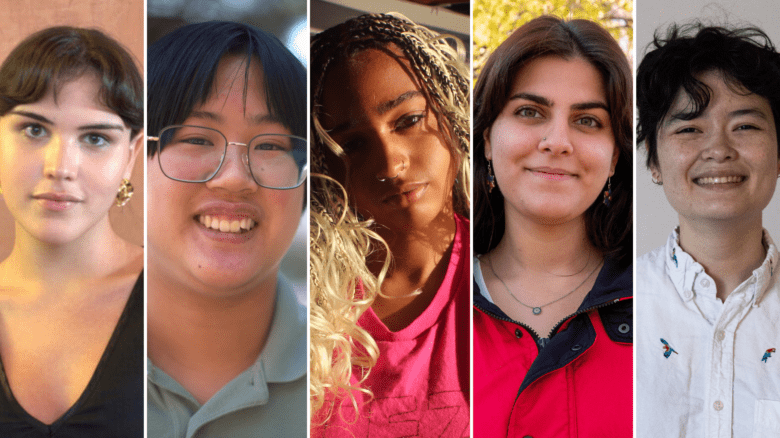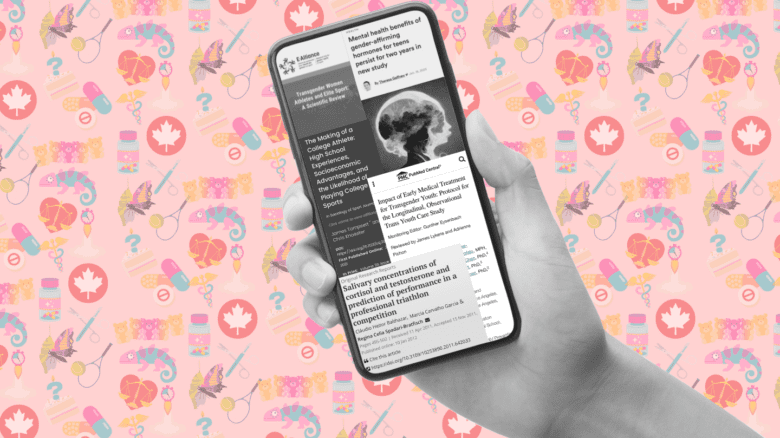One of this country’s most celebrated theatre artists is joining Xtra’s publisher Pink Triangle Press (PTP). Playwright, screenwriter and actor Daniel MacIvor has been named PTP’s creative development consultant and will spearhead the creation of new television, digital and podcasting projects for the LGBTQ2S+ media company.
Beginning in late 1980s with one-person plays like See Bob Run and Wild Abandon, MacIvor’s storied 40-plus-year career has won him a Governor General’s Award, the Siminovitch Prize and an Obie, among other accolades; his works are performed and loved the world over. MacIvor also has an extensive film career, penning shorts like The Fairy Who Didn’t Want to be a Fairy Anymore and features like Wilby Wonderful and the adaptation of his play Marion Bridge. Last year, he directed his first documentary, The Work, a feature-length road movie that interrogates MacIvor’s 2017 play Who Killed Spalding Gray?
MacIvor’s appointment to PTP marks a new chapter for both the artist and Xtra’s publisher. “We are thrilled to have someone as conceptual, creative and experienced as Daniel help us develop new projects with different kinds of narratives reflecting LGBTQ2S+ experiences,” says PTP’s chief content officer Jennifer McGuire. “Daniel brings new skills into this organization, which will allow growth in our storytelling and, we think, the alchemy of drama and the advocacy of our journalism will create a magical mix.”
I’ve been a fan of MacIvor’s ever since I was a neophyte gay in early 1990s Toronto and have written about him and his work over in the years; we have some history together. So I was keen to discuss this latest twist in his career and his hopes for the new creative studio he’s tasked with establishing.
This is so exciting. I’m flabbergasted you are coming to PTP. Tell me about the job.
Yes, I’m excited too. PTP has been part of my out-life since my out-life began. In fact Xtra felt like a large part of my public coming out when, back in 1986 (!), I was featured on the cover with Ron Jenkins for David Demchuk’s two-naked-men-on-a-mattress play about porn, Touch. And of course [Xtra’s predecessor] The Body Politic was the centre of all important conversations at the time. I feel like PTP has always been there, and now here I am.
This is new for the press, marking a turn toward the creation of a more varied array of media (that may or may not appear in Xtra). What do you hope to achieve?
Jennifer and I have already been talking about some exciting ideas that I’m hoping I can bring to fruition. Because a lot of my work in theatre and film has been development and production, I’ve been good at getting things done. I know how to let an idea bend and transform based on what’s available and what’s possible. My real hope is that we can actually make the things we’re dreaming about. I think we can.
And you’re looking for partners?
Yes, please! Send all comers this way. If we can find collaborators who can help facilitate these projects practically—maybe co-producers, maybe broadcasters—it will allow us to focus our attention on content development in a holistic, intuitive way.
How does joining PTP at this point fit into your overall career?
I’ve always been a collaborator first, I’ve always had close partnerships. With Sherrie Johnson in da da kamera, with Daniel Brooks with the solo shows we’ve done, most recently with Marcie Januska in reWork Productions. Even with my more traditional playwriting I’ve always worked with a theatre—Tarragon in Toronto or Mulgrave Road in Nova Scotia. Coming to work at PTP with Jennifer feels like a development of those kinds of relationships. But now the community is broader and the conversation is wider. And I guess that’s what I’ve been hungry for—a broader reach. It feels like an evolution that fits, like I’ve been working toward this.
We’re both cis gay men of, ahem, a certain age. I started at Xtra in 1992. But there was a 10-year gap between when I last worked here and when I came back as executive editor three years ago. I often note how grateful I am for the opportunity to participate in some small way in this latest wave of LGBTQ2S+ advocacy and cultural production. So much has changed since I started and yet, sadly, so much is the same. Would you agree that some gay men of our generation feel disconnected from the younger queer, trans and non-binary POV that frames a goodly portion of what Xtra does these days? How do you see yourself fitting into this new political moment?
Yes. Wow. So much there. It feels to me that we cis gay men who are aging into elder territory can feel overlooked or undervalued—of course that’s also just connected to aging in a consumerist society—but I think what we can miss is how we are all part of this single community, and that we need to centre our most vulnerable members in order to lift them up. One of the things that Jennifer talks a lot about is creating bridges inside our community between the L and the G and the B and the T and the Q and the 2S and also, and very importantly, the A, as in allies. We need to remember it’s early days in our growth. I came up through Queer Nation and have been most comfortable in the Q of the alphabet, and there is part of me that wishes that we could just embrace that as our overarching identity—so that we could be our LGBT2SA selves under a united banner of Q, in order have a stronger voice and more political traction. And I understand that there were missteps back in the day, and the dominant queer voices may not have been sensitive to cultural nuance and need. But since that time there has been a whole world of queer theory that has come up inside the academia, with voices like Sara Ahmed and José Esteban Muñoz and Eve Kosofsky Sedgwick, who have repositioned the notion of queerness into a broader idea, and one that is very much concerned with intersectionalism and under-represented voices. I am excited to look at how this thinking can help to build bridges in our community(ies). This is where I feel I can fit.
You once mentioned being a stealth gay. What did you mean by that?
Ha! I don’t know if I feel that so much anymore. At the time, I was thinking that I was more covert. I was part of the broader theatre world which, shockingly perhaps, is less queer than one might imagine. Not just working at Buddies, but also at Tarragon and Stratford and regional theatres in the country. My work did not have a rainbow flag on it, but it was always, deeply, queer. So audiences would come to the theatre and have the queer sneak up on them. I was like an undercover operative. Now things are different—we are able to stand in our lives in a more present way, and that’s part of what this job will allow me to do. To live my life without apology and to speak to, and with, a community I’m proud to be part of.


 Why you can trust Xtra
Why you can trust Xtra


